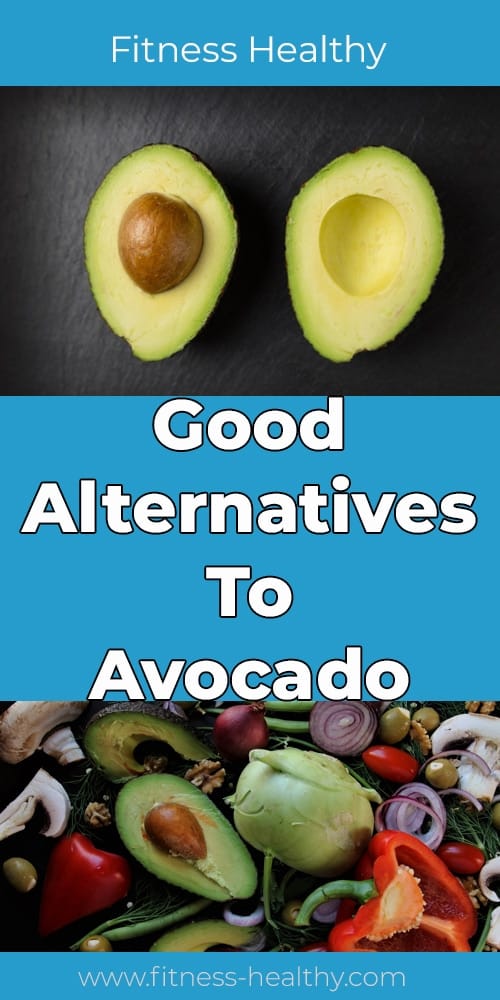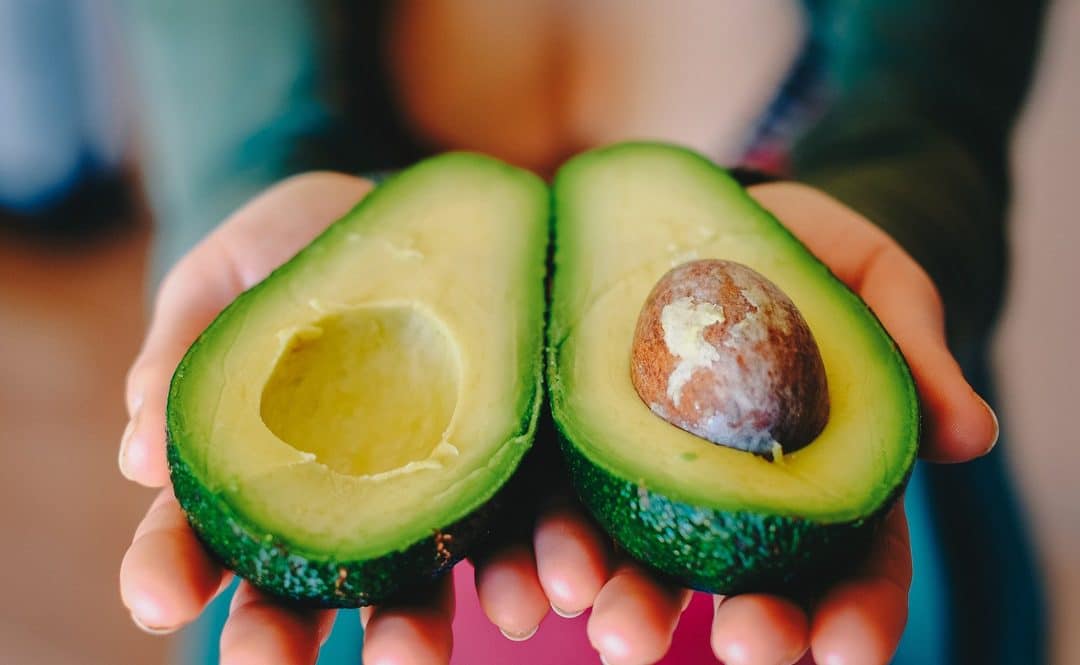Avocados are regularly described as an ecological disaster. Many people therefore no longer dare to buy avocados and ask us more and more often for alternatives to avocado. Are there alternatives to avocado?
Overview
Alternatives to avocado: Creamy, neutral, filling, healthy
Avocados are usually made into guacamole, a delicious dip with lemon juice, garlic, herbs and a little chili. Dressings, sauces, spreads, cold soups, smoothies or dessert creams can also be made from the avocado. Of course, you can also simply cut the fat-rich fruit in half, drizzle it with lemon juice, salt it a bit and spoon it out of its skin as a snack.
So if you are looking for an alternative to avocado, you are generally looking for a food that can be used for the recipes mentioned – and in such a way that these recipes taste at least approximately as good as if an avocado was inside.
One is thus looking for a food with a creamy consistency, a fairly neutral taste and a satiating nature. You are looking for a food that is also quick to prepare and healthy. And it has to have an ecological balance sheet that is as white as a flower.
Alternatives to avocado that are not alternatives at all
However, if you search for avocado alternatives on the net, you will find suggestions for walnuts, linseed, linseed oil, chestnuts and olives. They are all really great and healthy foods. But none of these foods can be used to make anything even remotely resembling the consistency or taste of a typical avocado recipe.
The authors of the respective recommendations do not even assume that one is looking for an avocado alternative for the preparation of a guacamole or spread. No, they believe that one is looking for other sources of avocado ingredients.
So anyone who has ever eaten avocados – so obviously their opinion – did not do so because they found the avocado so tasty, but because they wanted to be provided with certain fatty acids or because they wanted to be satisfied quickly in a healthy way.
So they chose foods that also contain certain fatty acids, and many of them. These foods should also be satiating, and they had to have a clean eco-balance.
This is similar to advising a passionate steak eater to simply take two spoonfuls of soy protein powder a day instead of steak, because this provides the necessary amino acids just as well and saves enormous resources.
In the following we explain why the commonly recommended avocado alternatives are not suitable as avocado alternatives and why it is by no means as ecologically sound as we are led to believe. But if you only want to know what actual avocado alternatives are available, scroll down further.
No avocado alternative: Walnuts
Walnuts are recommended as an avocado alternative because they would contain even more unsaturated fatty acids than the avocado. Well, that’s no wonder, as the avocado is a fruit and therefore has a high water content (77%), while the walnut, as a nut and seed, naturally has a very low water content (4.4%) and therefore contains all the more fat.
The walnut is also recommended because you can plant a walnut tree in your garden, which of course makes the avocado look very antiquated in terms of the ecological balance sheet.
But what does a person do who cannot yet harvest his own walnut tree? He has to buy his nuts in the shop.
Take a look at a walnut orchard! It doesn’t look much different than an avocado orchard. Monoculture – as far as the eye can see. And as far as the much-cited water consumption of the avocado is concerned, according to The Value of Water Research Report Series (published by the UNESCO-IHE Institute for Water Education), the avocado needs 1000 litres per kilogram of fruit, while walnuts need 4000 litres per kilogram with shell, and almost 8000 litres per kilogram without shell.
In the case of the avocado, only a third of the water required comes from artificial irrigation (blue water), in the case of the walnut it is even half.
Apart from that: you cannot produce guacamole from the walnut. Although there are great recipes with dressings, creams and spreads made from the walnut, they have little to do with the taste of the avocado.
No avocado alternative: flaxseed
Flaxseed is also occasionally listed as an avocado alternative, as it would both be rich in omega-3 fatty acids (a group of polyunsaturated fatty acids) and have a high fibre content.
Well, avocados provide a miserable 111 mg of omega-3 fatty acids per 100 g, which is why they will never appear in a list of omega-3-rich foods and why it will remain a mystery why the alternative for the omega-3-poor avocados is flaxseed, which contains 16,600 mg of omega-3 fatty acids, which is 15 times more than avocado per 10-gram portion.
Avocados, on the other hand, are a good source of the monounsaturated fatty acid called oleic acid (6,900 mg), which is also abundant in olives (9,940 mg) and almonds. Olives also have an overall fatty acid profile very similar to that of avocados (unlike flaxseed also in terms of the omega-6/omega-3 ratio), so people who eat avocados because of their fatty acid composition (if such people exist) might be advised to eat a handful of olives instead.
If one could at least conjure up avocado-like recipes from the flax seed, we wouldn’t bother with the fatty acids at all. But not even that is the case. You can make incredibly great crackers, delicious rolls and refreshing fruit puddings from the flaxseed, but nothing that would remind you of an avocado recipe.
By the way, linseed is also one of those foods that are hardly ever cultivated anymore. Linseed is therefore imported from abroad, preferably from Canada, Argentina, India, Russia or the Congo. After all, organic linseed comes from Italy or the Czech Republic. However, there are also companies that bring it in from faraway Kazakhstan.
Those who live in the proximity of an oil mill are lucky and might get there some local flax seeds and of course the oil from them. But as the demand for flaxseed oil is so high, often the amount of flaxseed harvested in domestic countries is not sufficient and the mills have to buy from abroad.
No avocado alternative: flaxseed oil
Of course, flaxseed oil is not suitable as an avocado alternative either, as its fatty acid composition is quite different from that of avocado oil. Furthermore, linseed oil cannot be used to conjure up guacamole or any other delicious creamy dish.
Flaxseed oil, on the other hand, is an oil that can be used sparingly in dressings for raw vegetables and is also part of the recipe of the famous Budwig curd cheese dish.
No avocado alternative: olives
As already explained under flaxseed, a person who eats avocados exclusively because of their high content of monounsaturated fatty acids (oleic acid) could eat a handful of olives instead.
However, in a healthy kitchen one will usually use a high-quality olive oil anyway, eat olives or even almonds and almond paste from time to time, so that as a vegetarian or vegan one will certainly not have a lack of monounsaturated fatty acids, especially since these fatty acids are contained in all nuts, seeds and oilseeds.
Omnivores are not deficient in monounsaturated fatty acids either, because meat, fish, sausages, mayonnaise, remoulades and margarines are full of monounsaturated fatty acids.
It therefore makes no sense to call avocados superfood because of their monounsaturated fatty acid content – as we read again and again. Hardly anyone will buy avocados of all things to eat monounsaturated fatty acids.
Needless to say, olives are not at all suitable for avocadotypical recipes. Their taste is much too intense.
No avocado alternative: Chestnuts
If you eat avocados to get full quickly in a healthy way, then chestnuts can of course be recommended as an alternative. However, you can eat a lot of food for this purpose, chestnuts are not necessary, and neither are avocados.
In order to get full quickly and healthily, you can also eat high-quality bread (whether with or without gluten), legumes, nuts, nut cheese, potatoes and much more.
Chestnuts must be imported, for example from Spain, France, Italy or Portugal. The sweet chestnut is therefore not indigenous, as it likes a mild climate.
Of course, guacamole cannot be made from chestnuts, nor can dressings or similar creamy recipes. Chestnuts are carbohydrate-rich foods that contain only 2 percent fat, so they have almost nothing in common with the avocado.
Real avocado alternatives for guacamole
What criteria must a true avocado alternative meet? It does not have to contain certain fatty acids, as we have already explained above, because monounsaturated fatty acids are also present in so many other foods.
For a true avocado alternative the following should apply:
It should be healthy, so it should not put any strain on the body.
It should taste as neutral as possible and have a creamy consistency.
You should be able to prepare guacamole from it.
It should have the best possible ecological balance.
And it should be green.
Since the avocado is a unique fruit in terms of consistency and taste, which cannot be replaced, you can create a combination of a vegetable and a homemade almond mayonnaise as an alternative. The result is very close to a guacamole in all respects – including the fatty acid composition, if that is important to you.
However, guacamole recipes need a little more time, about half an hour. So an avocado is prepared much faster here.
Avocado alternative green pea
Pureed peas are a very good avocado alternative in combination with homemade mayonnaise. Colour and consistency are right and the fatty acid pattern becomes avocado-like thanks to the mayonnaise made from almond paste and rapeseed oil. If you also take native peas into account when buying, then the eco-balance is also right.
Avocado Alternative Broccoli
Even with broccoli you can very well conjure up an avocado-free guacamole. Broccoli is easily obtainable from local cultivation in summer and autumn. In combination with the creamy almond mayonnaise, a delicious guacamole is created, which at the same time provides the healing substances of broccoli.
And if you want to eat a real avocado every now and then, you can do that too. After all, the avocado is by no means the eco-catastrophe that the mainstream always claims it is.
For more health related articles have a look at our health category.
Want to know more about Avocados? The Best Healthy Avocado Substitutes to Add to Your Diet
If you are looking for a diet program, here is our list:
The Smoothie Diet: 21 Day Rapid Weight Loss Program
Red Tea Detox – New Weight Loss For 2020!
Mediterranean Diet – The Official Diet Plan
14 Day Rapid Soup Diet – The Superman Of Keto For 2020











